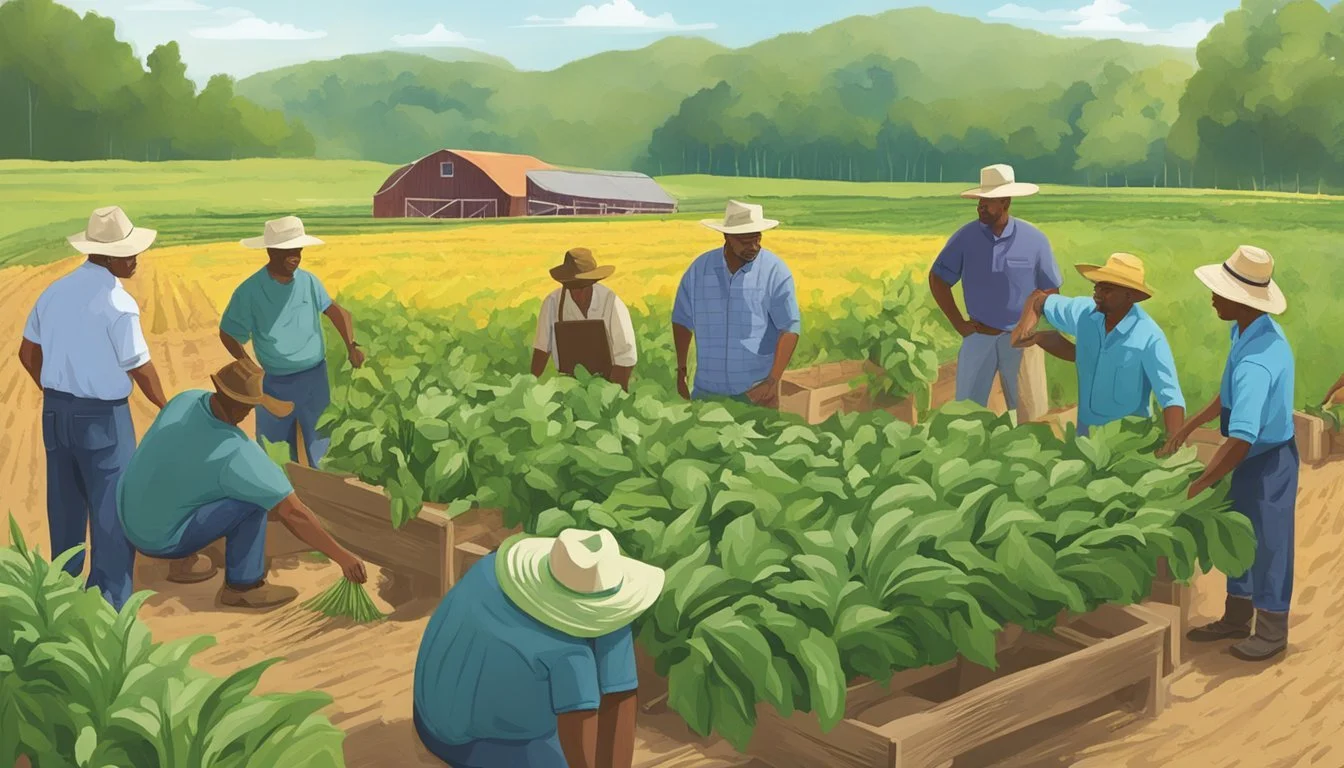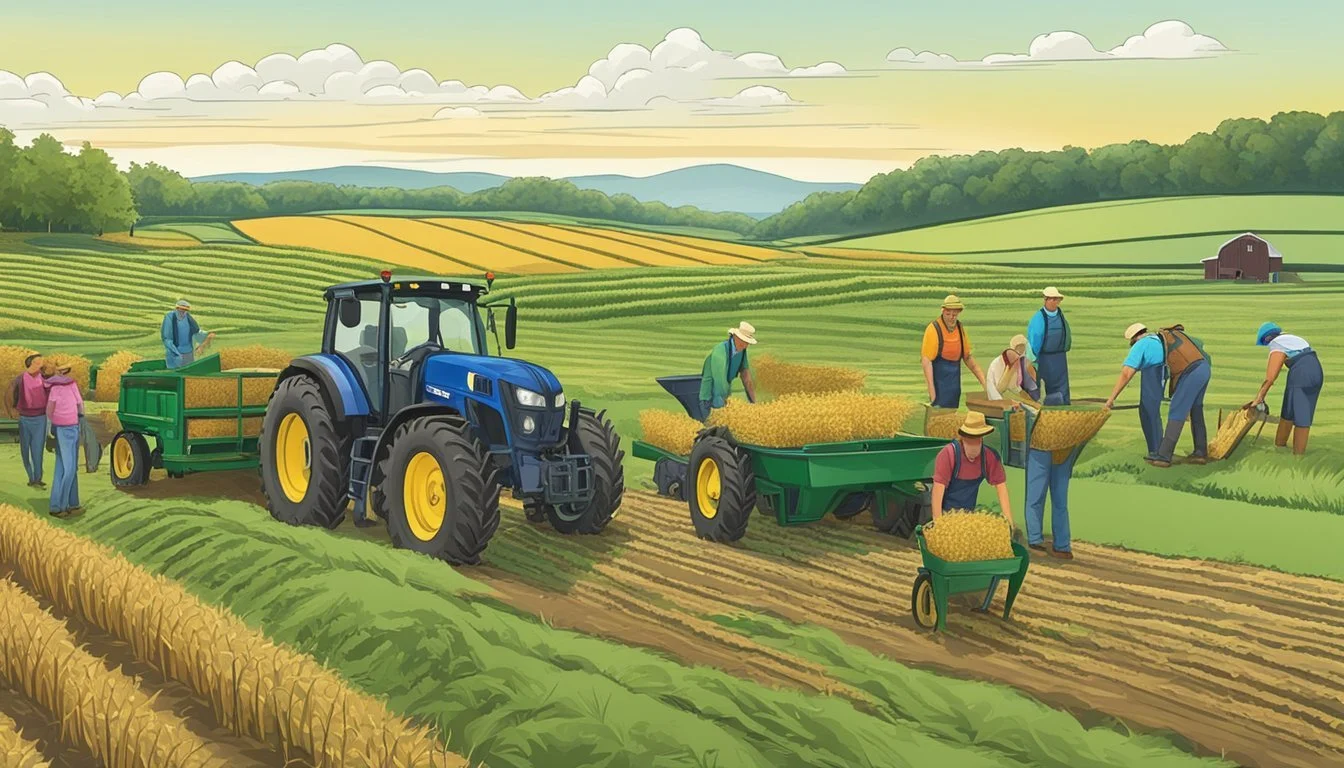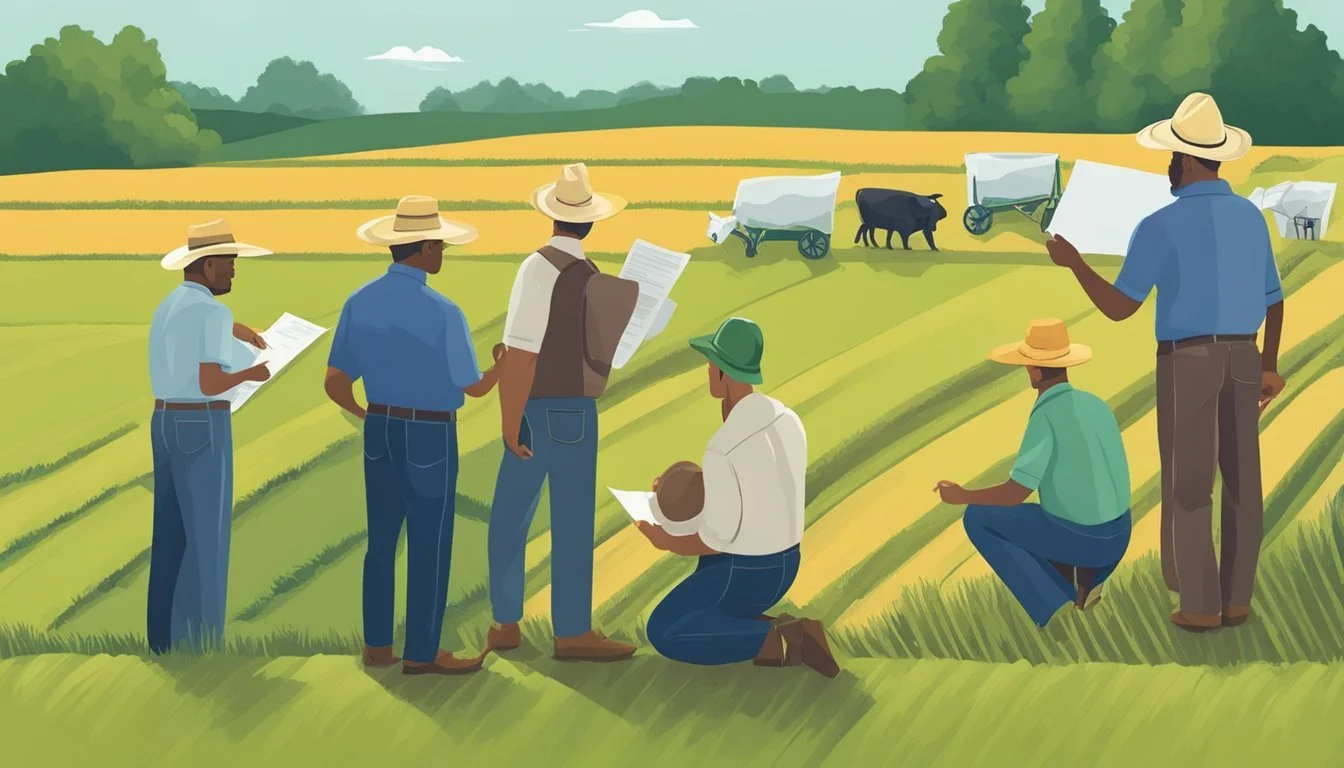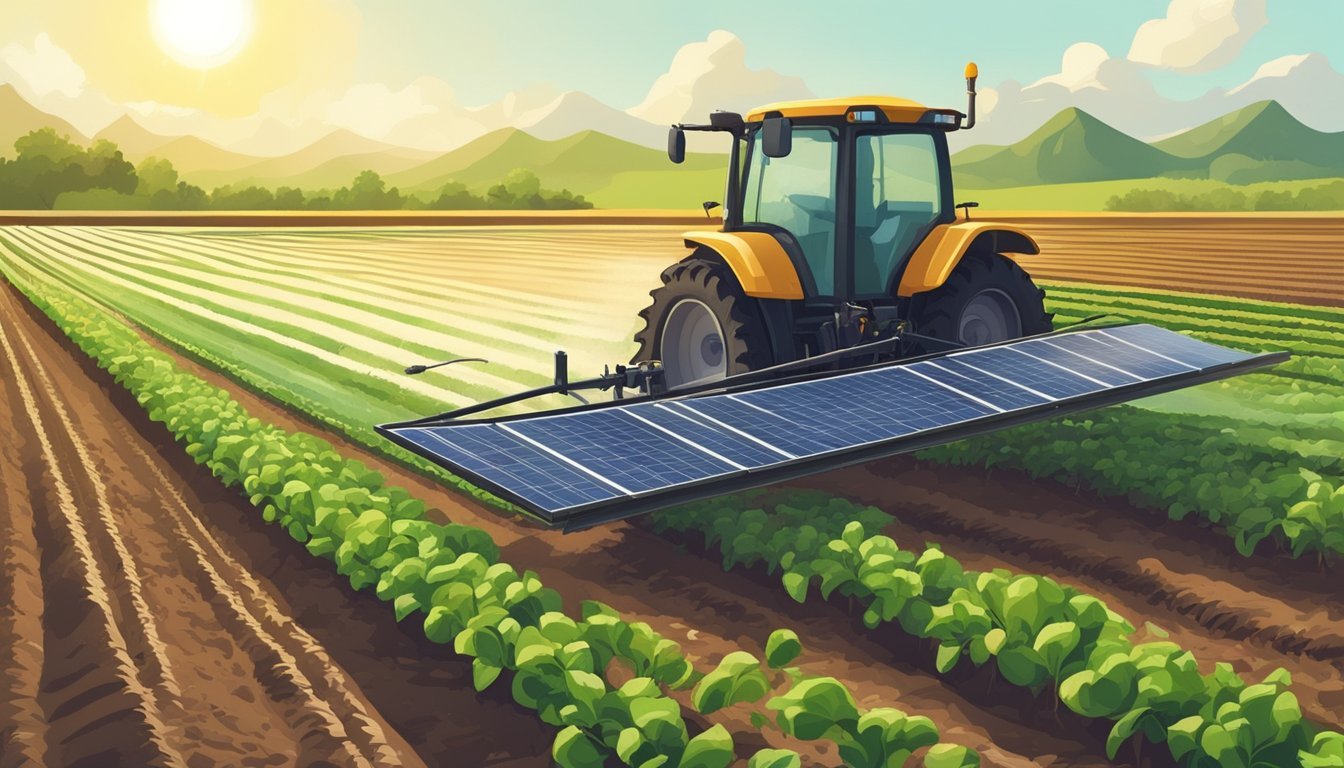Farming Grants Virginia
Unlocking Opportunities for Agriculturists
Virginia, a state with a rich history in agriculture and forestry, has developed various initiatives to support its farmers and rural communities. One component of this support is the offering of farming grants designed to bolster the agricultural sector. These grants serve as vital tools for growth and sustainability, enabling farmers to access financial assistance to enrich their operations, pivot towards more modern farming techniques, or expand their businesses to meet changing market demands.
The Commonwealth offers several grant programs, such as the Agriculture and Forestry Industries Development (AFID) Fund, which aims to foster economic development in the agriculture and forestry industries through both planning and facility grants. The AFID Facility Grants are discretionary, performance-based economic incentives targeting value-added or processing projects. On the other hand, the AFID Planning Grants support local governments in creating initiatives beneficial to the agriculture and forestry sectors.
Other Virginia-specific programs include the Virginia Food Access Investment Fund (VFAIF) and the USDA Farm Service Agency's Farm Storage Facility Loan Program, which provides low-interest loans to producers. These programs further contribute to developing a robust food and farming infrastructure within the state. By leveraging these grants and loan opportunities, Virginia's agricultural community continues to thrive and adapt in a dynamic economic landscape.
Understanding Farming Grants in Virginia
Virginia offers various grants to stimulate its agricultural sector, which are pivotal for the growth and promotion of local agriculture and forestry activities.
Types of Farming Grants
There are several types of farming grants available in Virginia, such as:
AFID Planning Grants: These grants assist local governments and private entities in agriculture and forestry. Single locality applications can receive up to $20,000, while multi-locality applications might be eligible for up to $35,000.
AFID Facility Grants: Aimed at supporting agriculture and forestry value-added or processing projects, the grants under this category are discretionary and performance-based.
Agriculture & Forestry Industries Development Fund (AFID): The grants from this fund are considered a discretionary incentive with the goal to grow agricultural and forestry industries, focusing on projects that add value to Virginia-grown products.
Eligibility Criteria for Applicants
To be eligible for these grants, applicants must meet certain criteria, which typically include:
Status: Applicants can range from individual producers to non-profit organizations, for-profit businesses, and even political subdivisions.
Project Impact: The proposed project should aim at the creation of new jobs and investment and should adjudicate to the value addition in agriculture and forestry products.
Matching Requirements: Most grants, like the AFID Planning Grants, require a matching contribution, which varies based on the grant type and the scope of the project.
By satisfying the eligibility requirements, Virginia's farmers and agricultural businesses can leverage these grants programs to foster growth and innovation in the agriculture and forestry sectors.
Key Funding Programs and Initiatives
Virginia has implemented several key programs and initiatives to support the economic development of its agriculture and forestry sectors. These programs offer critical funding to help enhance value-added productivity and infrastructure throughout the state.
Governor’s Agriculture and Forestry Industries Development Fund
The Governor's Agriculture and Forestry Industries Development Fund (AFID) is a strategic funding initiative led by the Governor of Virginia in collaboration with the Virginia Department of Agriculture and Consumer Services (VDACS). It provides discretionary, performance-based incentives to support value-added or processing projects that are expected to create new jobs and investment opportunities for Virginia’s agriculture and forestry products.
Virginia Food Access Investment Fund
Virginia Food Access Investment Fund is a program dedicated to improving food access and expanding consumer markets for Virginia’s agricultural products. This fund supports economic development by providing both financial and technical assistance for businesses that aim to increase food access in underserved communities, through a focus on developing local food systems and value-added agricultural production.
AFID Infrastructure Grants
The AFID Infrastructure Grants program awards matching funds to local governments. This grant can reach up to $20,000 for single locality applications or $35,000 for multi-locality applications, fostering a cooperative approach to promoting and supporting agricultural and forestry economic development. The grant targets improvements in value-added sectors by bolstering necessary infrastructure.
Value-Added Producer Grant
The Value-Added Producer Grant (VAPG) is a federally funded program aimed at helping agricultural producers enter into value-added activities related to the processing and marketing of new products. The goal is to generate new product lines, expand marketing opportunities, and increase producer income, ensuring the economic sustainability of Virginia's farm operations through innovation and expansion.
Agricultural Development and Support
Virginia's commitment to agricultural development is robust, offering a comprehensive range of supports focused on enhancing agribusinesses. Technical assistance, professional development, and marketing and business support are available to fortify local agriculture within the state, ensuring a competitive edge in the wider US market.
Technical Assistance and Resources
Virginia provides a wealth of technical assistance and resources to aid local agriculturists. Through initiatives like the Agriculture and Forestry Industries Development Fund (AFID), assistance is available for achieving best practices in sustainability, production efficiency, and technological implementation. Assistance from AFID is tailored to promote a strong foundation for agribusinesses, facilitating growth and competitive advantage.
Key Technical Supports include:
Access to latest agricultural research
Guidance in sustainable farming practices
Support for forestry management
Professional Development Programs
The state prioritizes professional development, understanding that a knowledgeable workforce is instrumental in maintaining the health of the agriculture sector. Programs focus on providing ongoing education and training to ensure that Virginia's agribusiness workforce is skilled in contemporary agricultural techniques and business strategies, contributing to local and state economic development.
Key Aspects of Professional Development:
Continuing education for agricultural best practices
Training in use of advanced agricultural technologies
Marketing and Business Development
Marketing and business development are crucial for the sustainability and growth of Virginia's agriculture. There's significant support for agribusinesses to carve out their market niche both locally and globally. Programs address the challenges of marketing and provide tools to develop business plans and strategies, leveraging Virginia's rich agricultural products.
Key Marketing and Business Development Supports include:
Resources for market research and strategy development
Assistance with branding and outreach for local agricultural products
Application Process for Farming Grants
The process of applying for farming grants in Virginia generally involves the meticulous preparation of documentation and the adherence to specific submission guidelines. Awardees are selected following a comprehensive review.
Document Preparation and Submission
Applicants must first download application forms, typically available as PDF files that can be opened with Adobe Acrobat Reader. Prior to submission, it is imperative that they thoroughly complete all necessary paperwork, ensuring accuracy and completeness.
Gather Information: Assemble all required data and support documents.
Fill Out Forms: Use Adobe Acrobat Reader to access and fill out PDF forms.
Check Eligibility: Ensure all criteria are met for the specific grant applied for.
Submit Application: Follow the submission guidelines to send in the completed forms before the deadline.
Review and Approval
Upon submission, applications undergo a review process whereby they are assessed against the grant's criteria and objectives.
Initial Screening: Applications are screened for completeness and eligibility.
Detailed Evaluation: Eligible applications are evaluated on merit, feasibility, and alignment with grant goals.
Decision: A decision to approve or reject the application is made.
Qualified awardees are then notified, with clear guidelines on fund disbursement and project reporting requirements.
Strategic Planning and Economic Impact
In Virginia, strategic planning in agriculture and forestry through targeted grants has proven vital for encouraging economic development and assessing the impactful growth of related industries.
Creating Effective Business Plans
Effective business plans are paramount for entities seeking to capitalize on farming grants in Virginia. The Agriculture and Forestry Industries Development (AFID) Planning Grant offers matched funding to single or multi-locality applications, fostering agricultural and forestry promotion. Business plans developed under this program are expected to detail strategic marketing initiatives and outline viable economic development strategies.
Elements of a Robust Business Plan:
Identification of market opportunities
Analysis of resources
Risk assessment
Financial projections
Marketing strategies
Assessing Economic Benefits
The Economic impact is a keystone measure to justify the allocation of grants like the AFID Planning Grant. These grants have catalyzed local economic development by matching up to $20,000 for single applications and $35,000 for multi-locality efforts. Over a decade, the state's contribution of $12.1 million has been met with local funding, which underscores the tangible benefits of such grants in Virginia's agricultural sector.
Metrics for Economic Benefit Assessment:
Job creation
Local investment growth
Business expansions
Revenue generation
By supporting robust business plans and rigorously assessing economic benefits, Virginia enhances its agricultural and forestry industries, creating a lasting impact on the state's prosperity.
Farm Operations and Sustainable Practices
In Virginia, funding initiatives are propelling farm operations towards enhanced sustainability, focusing on robust livestock and dairy production, improved crop management for soil health, and the preservation of water quality through strategic conservation efforts.
Livestock and Dairy Production
Livestock and dairy operations in Virginia can benefit from programs like the Virginia Agricultural Best Management Practices Cost-Share Program (VACS), which supports the implementation of sustainable agriculture practices. Farmers may receive financial assistance for feasibility studies and the adoption of nutrient management plans, vital for both the health of animals and the environment.
Crop Management and Soil Health
Crop management techniques are pivotal for maintaining soil health. Virginia provides grants for cover crops and other soil amendments which improve soil vitality and prevent erosion. These practices are not only beneficial for current crop seasons but also ensure long-term agricultural productivity and land resilience.
Water Quality and Conservation
Protecting water quality is a key aspect of sustainable farm operations. The state emphasizes conservation, offering funds to implement systems that reduce runoff and improve the quality of waterways. These grants encourage the use of buffer strips and sediment control methods to diminish the impact of farming on Virginia's water resources.
Support for Specialized Groups
Virginia recognizes the unique challenges and contributions of specialized groups in the agriculture sector. Through targeted grant programs and support services, the state aims to empower beginning farmers and ranchers, veterans, and local and minority farmers.
Beginning Farmers and Ranchers
The Virginia Beginning Farmer and Rancher Coalition offers resources and support to new entrants in the agricultural field. They prioritize assistance through professional development programs, aiming at equipping these individuals with the necessary skills and knowledge to succeed. Often, these services include training in sustainable practices and business management tailored for those starting their agricultural ventures.
Veterans in Agriculture
Virginia provides support for veterans transitioning into agricultural roles through specialized programs that acknowledge their service and cater to their specific needs. Veterans looking to explore opportunities in agriculture have access to resources that can help them leverage their military skills in farming. These resources may include matching grants and initiatives that facilitate partnerships.
Supporting Local and Minority Farmers
Efforts are made to strengthen the capabilities of local and minority farmers, providing them with greater support to thrive in a competitive market. Matching grants administered by local governments often incentivize initiatives that champion local food production and sustainable practices. Grants designed to enhance the competitiveness of specialty crops, as managed by the Virginia Department of Agriculture and Consumer Services (VDACS), are examples of such support.
Entities such as Genette Harris, dedicated to empowering minority farmers, also play a crucial role in providing guidance and assistance. They focus on the development of business acumen among these groups, ensuring they have solid foundations for their agricultural endeavors.








